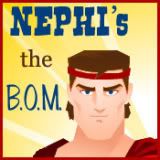

Friends Again at Last
From Music and the Spoken Word
Delivered By: Lloyd D. Newell • Program 4154
Ella Wheeler Wilcox probably wrote from personal experience when she said:
One great truth in life I’ve found, . . .
The only folks we really wound
Are those we love the best.1
It seems ironic, but it is true that by a careless word or a thoughtless or selfish act we do the most harm to those who are most precious to us. And if we don’t do something to correct the problem, our most valued relationships can be permanently damaged.
The key to repairing much of the hurt can be summed up in two words: “I’m sorry.” It takes a wise and strong person to say these words, and it may be hard to do, but a renewal of love and friendship are worth it. Life is too short and friendships are too few to waste time fighting or holding a grudge when an apology will set things right.
One man who thought he had been offended by some of his friends reacted to his hurt feelings by spreading lies about his former companions and even putting their lives in danger. Later, when he was finally able to recognize how much he had lost and how he wanted to rebuild those friendships, he wrote to them saying, “I have done wrong and I am sorry.” Quick to forgive, his friends responded, “Come on, dear brother, . . . for friends at first, are friends again at last."2
Perhaps no two words can do more good than “I’m sorry.” They can overcome anger and mend the broken heart. An apology, when followed by sincere effort, can bring peace and put derailed relationships back on track. Even if we think we aren’t at fault, if we apologize for whatever we might have done to contribute to the hurt, “friends at first” can be “friends again at last.”









No comments:
Post a Comment